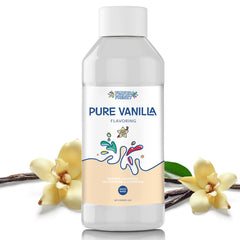Your Cart is Empty
Comprehensive Exploration of Peppermint Oil: From Natural Functions to Commercial Applications
Peppermint Oil is a versatile natural remedy extracted from the leaves of the peppermint plant, a hybrid of spearmint and watermint. Its key components, menthol, and menthone, contribute to its efficacy in relieving digestive issues, such as irritable bowel syndrome, and alleviating muscle and joint pain.
Historically, peppermint oil has been used for centuries in various civilizations for its medicinal properties. Today, its popularity extends beyond traditional use to culinary and commercial applications, making it a staple in the industry.
Peppermint oil affects esophageal, gastric, small bowel, gallbladder, and colonic physiology. Recent studies suggest it may improve exercise performance by increasing energy and enhancing physical performance.
Given its diverse benefits and increasing demand, high-quality peppermint oil is sought after in bulk for various purposes.
The natural properties of peppermint oil make it an essential ingredient in health products and foods, offering a cooling and soothing effect.
Understanding the properties, benefits, and appropriate uses of peppermint oil is crucial for leveraging its full potential.
Want to purchase peppermint oil – Get your custom quote today!
Discover also our products:
Natural Functions of Peppermint Oil
Peppermint oil, derived from the leaves and flowers of the peppermint plant, a hybrid of water mint and spearmint, exhibits a multitude of natural functions that contribute to its widespread use. Menthol and menthone are key components that provide cooling, invigorating, and antispasmodic properties. These compounds help relieve muscle and joint pain, soothe digestive issues, and display antimicrobial and antioxidant activities.
The global market for peppermint oil is expanding, with a projected value of $658.2 million by 2031, growing at a CAGR of 6.6%. This growth is largely driven by the increasing demand for natural and organic remedies, particularly in the pharmaceutical and personal care industries.
Peppermint oil's versatility includes its use in aromatherapy for treating conditions such as acne, dermatitis, and digestive problems.
It also has moderate evidence supporting its effectiveness in alleviating symptoms of Irritable Bowel Syndrome (IBS).
With its diverse applications, peppermint oil continues to be a popular ingredient in various products, emphasizing its significance in both health and wellness sectors.
Health Benefits and Uses
The multifaceted nature of peppermint oil's benefits makes it a valuable addition to various health and wellness regimens. It alleviates digestive issues such as irritable bowel syndrome (IBS), reducing symptoms like abdominal pain, bloating, and gas.
Peppermint oil also has antimicrobial, antiviral, and antioxidant properties, making it useful for skin care and respiratory aid. Its cooling effect can soothe itchiness and irritation from issues like hives or allergic rashes.
Furthermore, peppermint oil can provide relief from tension headaches and muscle spasms when applied topically or inhaled. It serves as a natural insect repellent due to compounds like menthol.
Research indicates that 75% of patients with IBS experienced significant relief from symptoms after using enteric-coated peppermint oil capsules.
Thus, incorporating peppermint oil into your regimen can offer comprehensive health benefits.
Commercial and Culinary Uses
Peppermint oil is widely utilized beyond its health benefits, playing a significant role in both commercial and culinary sectors.
- Flavoring Agent: It is used extensively as a flavoring agent in foods and beverages, adding a revitalizing minty taste.
- Cosmetic Fragrance: In cosmetics, peppermint oil serves as a fragrance in soaps, lotions, and other personal care products due to its invigorating scent and cooling properties.
- 71% of peppermint oil's global production is used in the food and beverage industry, underscoring its popularity as a flavoring agent.
- Peppermint oil is also incorporated into topical products for pain relief and skin issues, such as muscle aches, joint pain, and itching.
- Its versatility extends to aromatherapy, where it is used to treat coughs, colds, stress, and improve mental function.
- The compound menthol, a key component of peppermint oil, contributes to its cooling and antispasmodic properties, making it beneficial for various applications.
- Recent studies highlight peppermint oil's potential to improve athletic performance and reduce digestive issues, further broadening its use.
- Peppermint oil is also valued for its antibacterial and antiviral properties, making it a valuable ingredient in natural health products.
- Its cooling effect makes it a popular ingredient in skincare products, helping to soothe and calm irritated skin.
History and Biosynthesis
The origins of peppermint oil date back to ancient times, with the plant Mentha piperita being a hybrid of spearmint (Mentha spicata) and water mint (Mentha aquatica). It was first identified in England in 1696 by John Ray and named Mentha piperita by Carl Linnaeus in 1753.
Peppermint has been used for medicinal purposes for thousands of years, with records mentioning its use in ancient Greece, Rome, and Egypt. In the 18th century, peppermint was cultivated commercially for its essential oil, primarily in Mitcham, Surrey, England, and later in the United States, particularly in Michigan, which became a major producer of peppermint oil.
The biosynthesis of peppermint oil involves complex pathways, with (+)-pulegone as a central intermediate in producing menthol and menthone. Peppermint oil is highly valued for its digestive benefits and is used in various products, including teas, candies, and pharmaceuticals.
Today, the global peppermint oil market is dominated by a few major producers, with over 90% of the world's true peppermint oil coming from just a few regions by the early 20th century.
The United States, particularly Michigan and the Pacific Northwest, remains a significant player in the global peppermint oil industry.
Buying in Bulk and Wholesale
Purchasing peppermint oil in bulk or wholesale can significantly reduce costs and streamline supply chains. Bulk peppermint oil is offered by various reputable suppliers, ensuring high-quality products through strict quality control and transparent sourcing methods.
Bulk purchases account for over 80% of the global essential oil market, indicating a strong demand for wholesale pricing.
High-quality bulk peppermint oil is available in various sizes, ranging from 16 ounces to 1 kilogram or more, catering to diverse needs in industries such as aromatherapy, cosmetic manufacturing, and food processing.
Essential oils, including peppermint oil, are projected to see a compound annual growth rate (CAGR) of 7.4% from 2022 to 2028, driven by increasing demand in the cosmetics and food sectors.
Suppliers emphasize the importance of rigorous testing, including gas chromatography (GC) and mass spectrometry (MS) to ensure purity and authenticity.
Fulfilling at least 90% of the quality standards set by international bodies such as ISO and EC, high-end suppliers differentiate themselves through strict compliance.
By buying in bulk, customers can benefit from lower prices per unit, making it an economical choice for businesses and individuals needing large quantities of peppermint oil.
Therapeutic-grade peppermint oil is particularly sought after for its potent menthol content and diverse applications, including skin care, dental care, and respiratory relief.
Peppermint Oil Market Statistics
|
Application |
Market Share |
|
Health and Wellness |
50% |
|
Food and Beverage |
30% |
|
Cosmetics and Aromatherapy |
20% |
Important Key Points
- Safety Profile: Peppermint oil appears to have a good safety profile with few adverse effects reported in clinical trials.
- Historical Use: Peppermint has been used for centuries as a treatment for gastrointestinal ailments.
- Versatility: Peppermint oil is used in various forms, including enteric-coated capsules, liquid extracts, and dried leaves for infusion.
Additional Data and Statistics
- Therapeutic Use: Placebo-controlled studies support the use of peppermint oil in irritable bowel syndrome, functional dyspepsia, childhood functional abdominal pain, and postoperative nausea.
- Biochemical Pathways: The biosynthesis of peppermint oil involves complex enzymatic steps controlled by transcriptional and translational production of pathway enzymes.
Want to purchase peppermint oil – Get your custom quote today!





